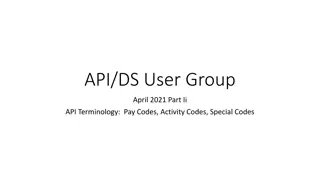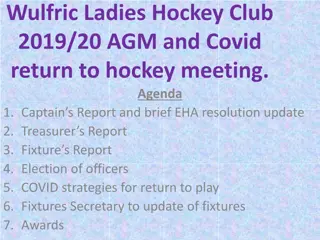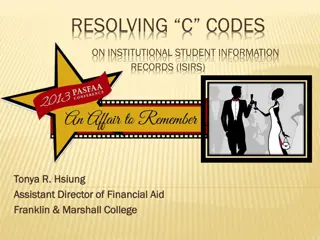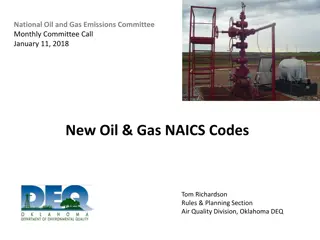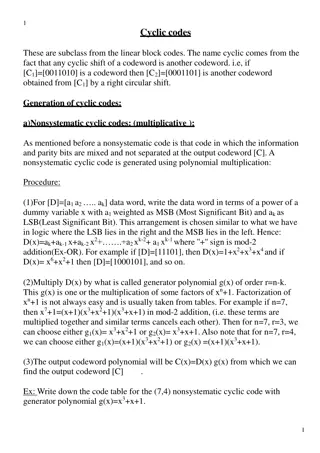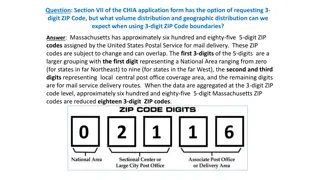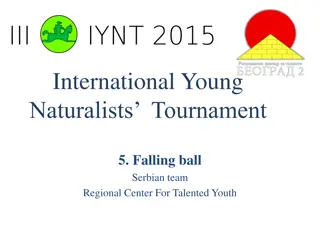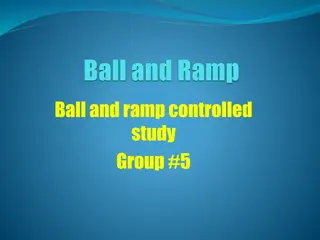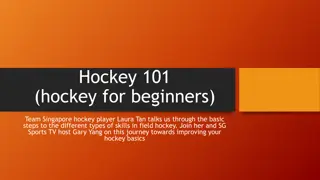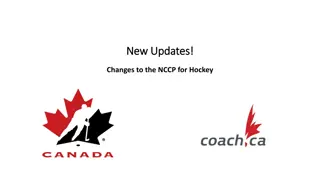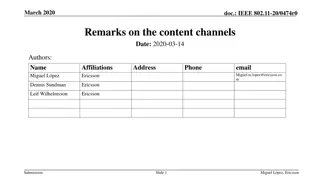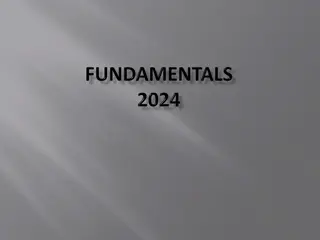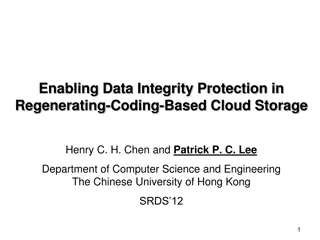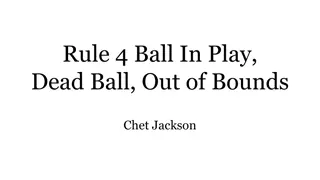USA Ball Hockey Codes of Conduct and Guidelines
USA Ball Hockey sets forth clear codes of conduct for administrators, coaches, on-rink officials, and parents to ensure a positive and respectful environment within the sport. These guidelines emphasize fair play, sportsmanship, mentorship, and the overall development of players. The codes encourage professionalism, effective communication, and a supportive attitude towards all individuals involved in the sport.
Download Presentation

Please find below an Image/Link to download the presentation.
The content on the website is provided AS IS for your information and personal use only. It may not be sold, licensed, or shared on other websites without obtaining consent from the author.If you encounter any issues during the download, it is possible that the publisher has removed the file from their server.
You are allowed to download the files provided on this website for personal or commercial use, subject to the condition that they are used lawfully. All files are the property of their respective owners.
The content on the website is provided AS IS for your information and personal use only. It may not be sold, licensed, or shared on other websites without obtaining consent from the author.
E N D
Presentation Transcript
CODES OF CONDUCT USA Ball Hockey provides the foundation for the sport of street and ball hockey in America. We strive to empower players and coaches with opportunity to participate in a game that encourages work ethic, leadership, sportsmanship, and mentorship, as well as develop the fundamentals through education of the sport. USABH aspires to develop coaches, players, officials, programs, and facilities. Our codes of conduct are a promise of commitment that all USABH players, coaches, officials, fans, and associates will promote the sport with pride, dignity and respect towards all individuals. Administrator s Code of Conduct Follow the rules and regulations of USA Ball Hockey and your association to ensure that the association s philosophy and objectives are enhanced. Support programs that train and educate players, coaches, parents, officials and volunteers. Promote and publicize your programs; seek out financial support when possible. Communicate with parents by holding parent/player orientation meetings as well as by being available to answer questions and address problems throughout the season. Work to provide programs that encompass fairness to the participants and promote fair play and sportsmanship. Recruit volunteers, including coaches, who demonstrate qualities conducive to being role models to the youth in our sport. Encourage coaches and officials to attend USA Ball Hockey clinics when available. Make every possible attempt to provide everyone, at all skill levels, with a place to play. Read and be familiar with the contents of the USA Ball Hockey s official playing rules. Develop other administrators to advance to positions in your association. Coaches Code of Conduct Care more about the child than winning a game. Be a positive role model to all of your players. 2
Be generous with your praise when it is deserved; be consistent and honest; be fair and just; do not criticize players publicly; learn to be a more effective communicator and coach; don t yell at players for the sake of yelling. Never verbally or physically abuse others, particularly a player or official; give all players the opportunity to improve their skills, gain confidence and develop self-esteem; teach players the basics. Organize practices that are fun and challenging for your players. Familiarize yourself with the rules, techniques and strategies of hockey. Maintain an open line of communication with your players parents. Explain the goals and objectives of your team. Be concerned with the overall development of your players. On-Rink Officials Code of Conduct Act in a professional and businesslike manner at all times and take your role seriously. Provide a safe and sportsmanlike environment in which players can properly display their hockey skills. Know all playing rules, their interpretations and their properapplication. Manage and help to control games in cooperation with the coaches to provide a positive and safe experience for all participants. Be fair and impartial at all times. Use honesty and integrity when answering questions. Admit your mistakes when you make them. Never openly criticize a coach, player or fellow official and keep your emotions under control. Dedicate yourself to personal improvement and maintenance of officiating skills. Respect your supervisor and his/her critique of your performance. Parent s Code of Conduct Do not force your children to participate in ball hockey, let them make the decision to play. Encourage your child to play by the rules set forth by USA Ball Hockey. Do not embarrass your child by yelling at players, coaches or officials. 3
Support the officials on and off the ice but never criticize an official for their calls. Remember, it is only a game. Applaud a good effort in both victory and defeat, and enforce the positive points of the game. Never yell or physically abuse your child after a game or practice. Recognize the importance of volunteer coaches. They are important to the development of your child and the sport. Communicate with them and support them. Become an active member of your hockey community and volunteer. Player s Code of Conduct Play for fun but work hard to improve your skills. Be a team player and get along with your teammates. Learn teamwork, sportsmanship and discipline. Always be a good sport. Respect your coach, your teammates, your parents, opponents and officials in pubic or in private. Never argue with an official s decision, as they are unlikely to change their mind and your conduct can be viewed as unbecoming. Spectator s Code of Conduct Display good sportsmanship. Always respect players, coaches and officials; do not taunt or disturb other fans; enjoy the game together. Cheer good plays of all participants; avoid booing opponents. Help provide a safe and fun environment; throwing any items on the playing surface can cause injury to players andofficials. Support the referees and coaches by trusting their judgment and integrity. Be responsible for your own safety, be alert to prevent accidents from balls and other avoidablesituations. Respect buildings and locker rooms as private areas for players, coaches and officials. Recognize good effort, teamwork and sportsmanship. 4






